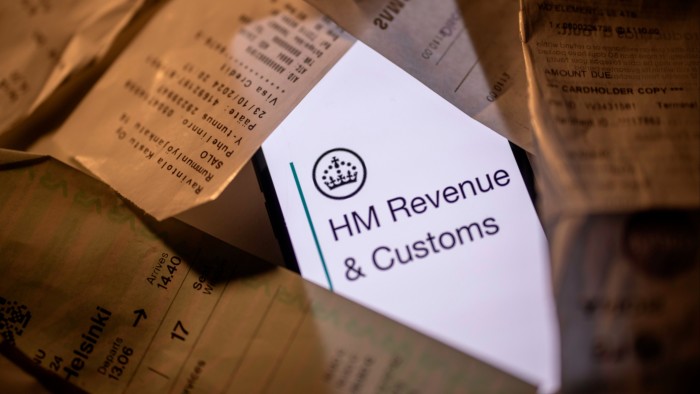Unlock the Editor’s Digest for free
Less than half of fines charged to UK companies for filing their accounts late were paid last year, raising questions about the efficacy of Companies House enforcement.
Just £73.5mn, or 46 per cent, of the £158mn in fines given to offending companies in 2023/24 was paid, down from 57 per cent collected in 2019/20 — the last full financial year before Companies House introduced a three-month extension for filing for between June 2020 and April 2021 as a result of the Covid-19 pandemic.
Between 2018/19 and 2023/24, £386mn has gone uncollected from a total £785mn levied in fines on companies, according to figures disclosed under Freedom of Information laws.
Companies are given penalties from Companies House if they file their accounts late, with the money ultimately paid to the Treasury.
The fines range from £150 for private entities that file within a month of the deadline, to £15,000 for public ones that file more than six months late for two consecutive years.
Craig Beaumont, executive director at the Federation of Small Businesses, said the data raised questions about disclosures on fines by Companies House, an executive agency of the Department for Business and Trade.
While the agency publishes data on the number and value of fines levied, it does not specify how much of the fines are actually paid.
Beaumont added that, “If this is the same [directors of companies repeatedly], racking up more and more fines but without meaningful engagement, then this will snowball until authorities begin enforcement”.
Failure to deliver accounts is a criminal offence, with 987 directors prosecuted for not doing so in 2023/24, and can eventually lead to companies being struck off the Companies Register.
Johnathan Dudley, a partner at accounting firm Crowe, said the statistics were “alarming” and showed what happened if the directors of rogue companies were not held to account.
“You can threaten what you like, but if you do not engage teeth then this will continue,” he said.

Companies House said it had “robust procedures in place for the collection of all unpaid penalties”, and that it was “deploying new powers to tackle persistent non-compliance”.
“Debts are only written off after four years and when all recovery options have been exhausted, or there is no economic benefit in pursuing them any further,” it added.
Dudley said the disparity between fines paid and the amount levied may also be further evidence of “ghost” companies formed during the pandemic to receive Bounce Back Loans but which have now gone insolvent with their directors having “run for the hills”.
This is because companies that do not pay their fine may never file their accounts because the company has been allowed to go insolvent, he said.
“If these [offending] companies were formed during Covid with a view to securing Covid loans then the individuals will be difficult to find,” he said.
The Bounce Back Loans scheme was launched in May 2020. It targeted the smallest businesses, offering loans of up to £50,000 — or 25 per cent of annual turnover — to help them stay afloat during the pandemic.
Some £47bn of the loans were issued, without mandatory credit checks for borrowers. The government provided a 100 per cent guarantee for the loans if businesses were unable to repay.
The House of Commons Public Accounts Committee estimated in April 2022 that up to £17bn of the loans would never be recovered, with £4.9bn being lost to fraud.
A Department for Business and Trade spokesperson said it would “always protect taxpayers’ interests” and had appointed a commissioner to recoup money lost to fraud.

